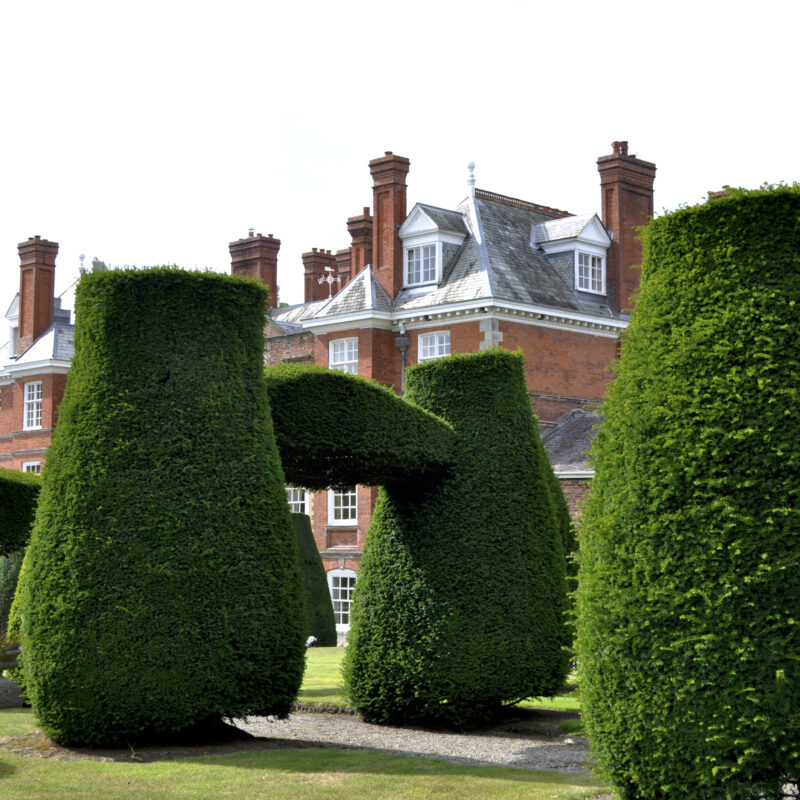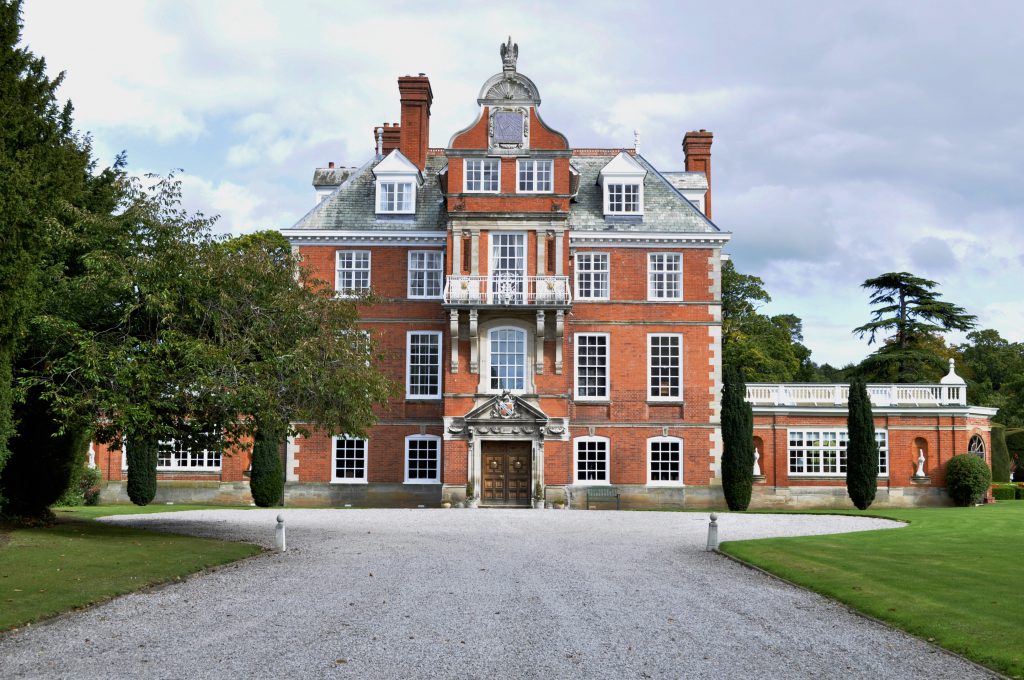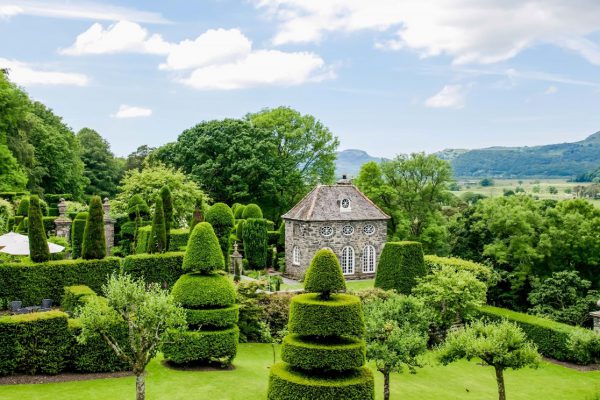Discover the Houses and Gardens of Wales
Pippa Blenkinsop describes some special places to visit
Extract from Historic House magazine, Summer 2014
Despite being a small country, Wales has a wealth to offer the visitor. From breathtaking mountain scenery and miles of stunning coastline, to three beautiful national parks and a scattering of the UK’s finest historic houses and gardens – several of which still remain in private ownership and are just waiting to be explored.
Bodrhyddan Hall, Denbighshire
A mile long, tree-lined driveway sets the scene for this impressive country house, home to the Conway family for over 500 years. The present structure is the third property to stand on the site and although some of the Medieval walls of its predecessor still remain, it is essentially seventeenth century, heavily remodelled in the 1800s by famous architect William Eden Nesfield who is responsible for the spectacular Queen Anne Revival entrance facade. Inside, the property can be experienced by guided tour only and boasts a diverse collection of artefacts ranging from ancient armour to an Egyptian mummy.
The eight acre estate which surrounds the house is an attraction in itself and combines formal and informal gardens with parkland and woodland. Directly to the rear, the symmetry and grandeur of the house is reflected in an elegant gravel parterre, also the work of Nesfield, which is surrounded by topiary ewes. Replanted every year with geraniums and ageratum, this formal garden injects dazzling colour during summer months, whilst the rest of the garden comprises lush pleasance punctuated with pools and historic architectural features including a holy well and icehouse.
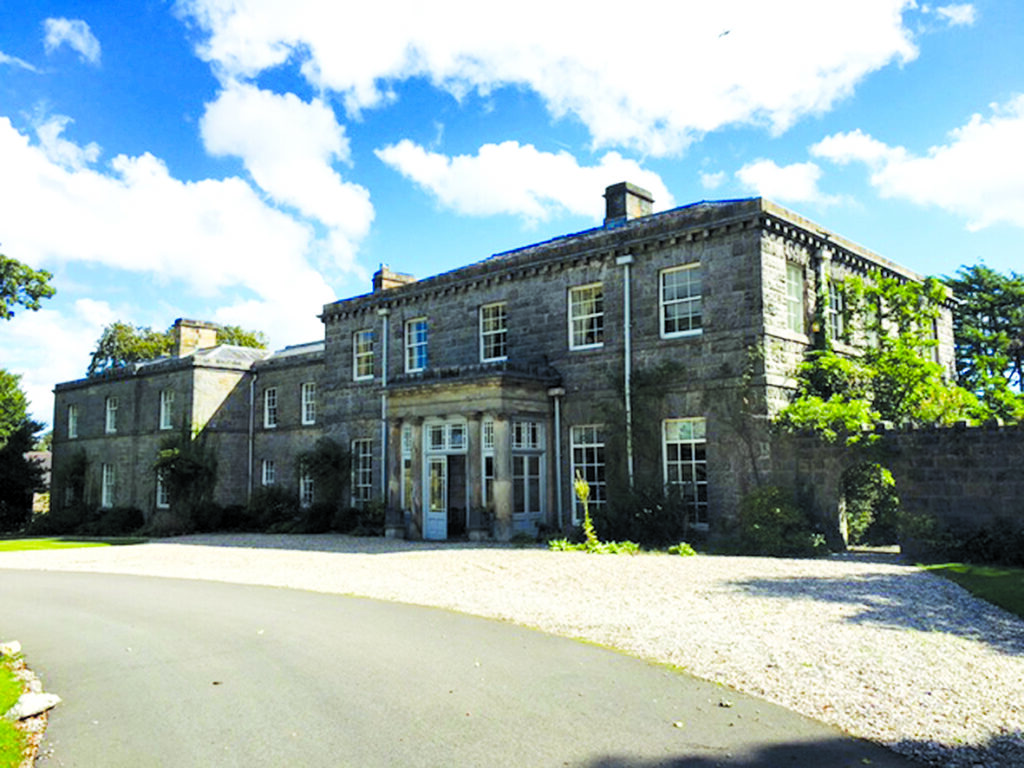
Hartsheath
Hartsheath, Flintshire
Originally built in 1702 for the Lloyd family, Hartsheath was later transformed in 1825 into a Neo-Classical residence for the director of a Welsh iron and coal mining company by Charles James Mathews. Adjacent to the house are formal paved terrace, lawns and bordered pathway, but beyond the garden is given over to informal parkland. Take a stroll through the woods down to the Alyn River which bounds the estate or venture across the fields in front of the house to discover the intriguing feature you’d expect to be a ha ha, but was in fact a sunken passage used to conceal servants.
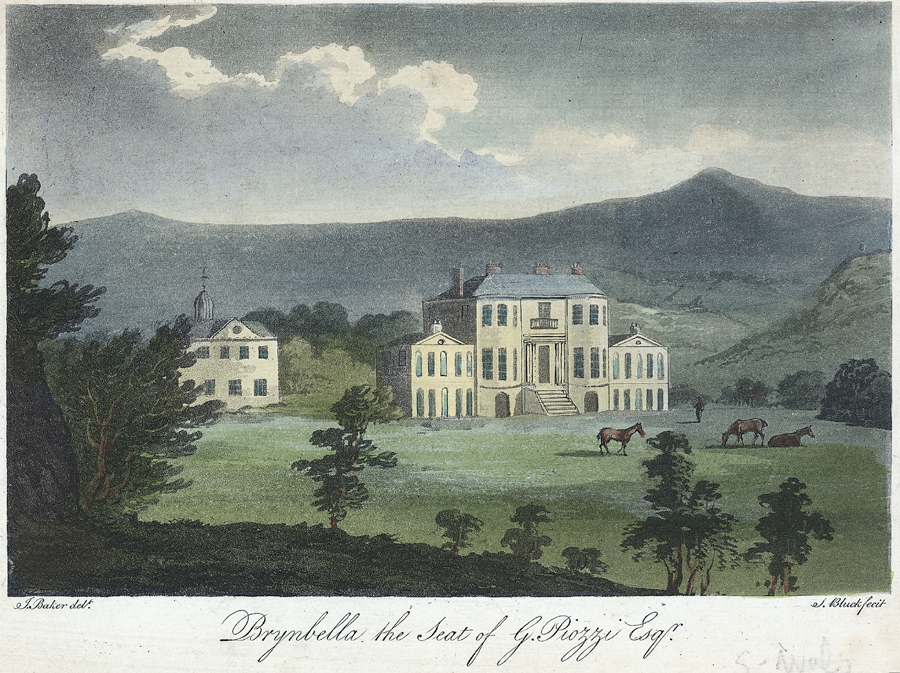
Brynbella House
Brynbella Gardens, Denbighshire
Built in 1795 for musician Gabriel Piozzi and his wife, this grade II listed, Palladian style villa is considered by many to be the finest Georgian building in Wales and is set in four acres of beautiful grounds. The house itself is not currently open to visitors, which is just as well as the gardens have so much to offer! Directly behind the property is uninterrupted parkland offering stunning views across the Vale of Clwyd, whilst to the north lies a spectacular garden of rooms comprising three water gardens, rose and kitchen garden.
Unlike the gardens of many stately homes, Brynbella has continued to evolve over time and today is a refreshing mix of old and new. Its current owners are not afraid to embrace contemporary design and have incorporated an award-winning gravel garden, designed by Andy Sturgeon, as well as punctuating the garden with pieces of contemporary sculpture.
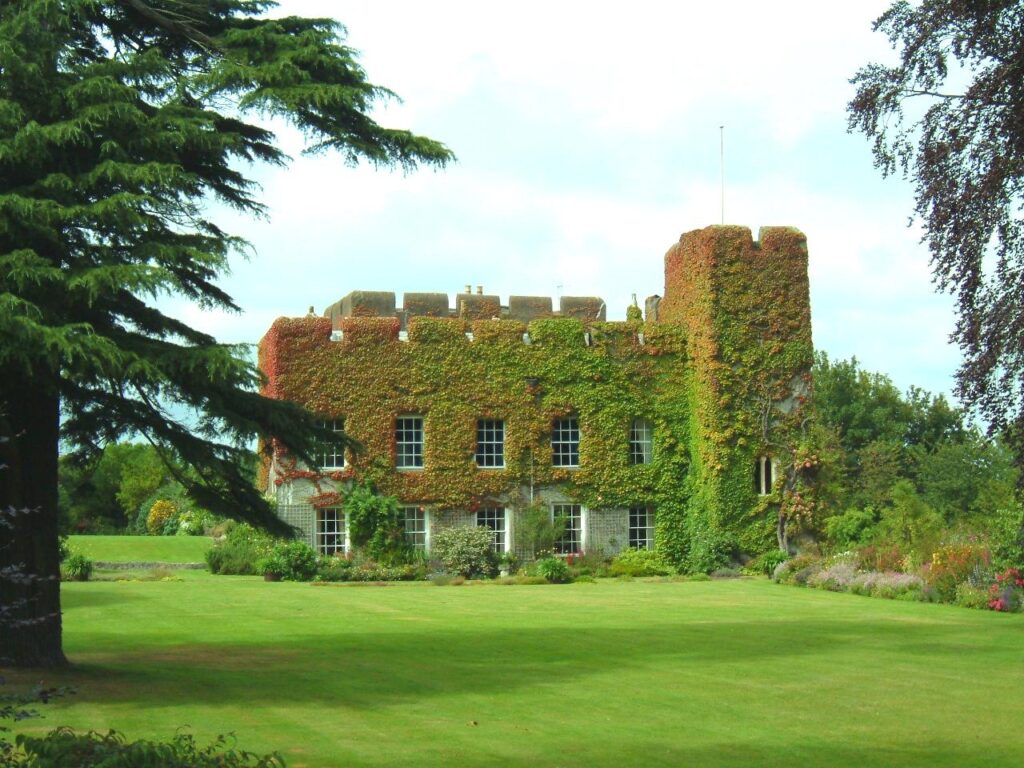
Fonmon Castle
Fonmon Castle, Vale of Glamorgan
Less castle more fortified country house, this ancient building is the home of Sir Brooke Boothby whose family are only the second to own it in 800 years. Although built in the thirteenth century, the building has been subject to extensive remodelling, particularly internally, which now boasts a light and elegant Georgian interior – a stark contrast to the castle’s austere, heavy outward appearance.
Outside, the nine acre grounds which encompass the castle are just as spectacular, offering plenty to see and do. Venture in one direction to discover picturesque Medieval ruins and a wooded dell, or head north and explore the beautiful cluster of adjoining walled gardens including elegant formal garden with central pool, fully-functioning kitchen garden and scented garden complete with thatched summer house.
Other notable features include a border dedicated to fuchsias in honour of Sir Boothby’s grandmother – former president of the Fuchsia Society – and a rare copper beech tree.
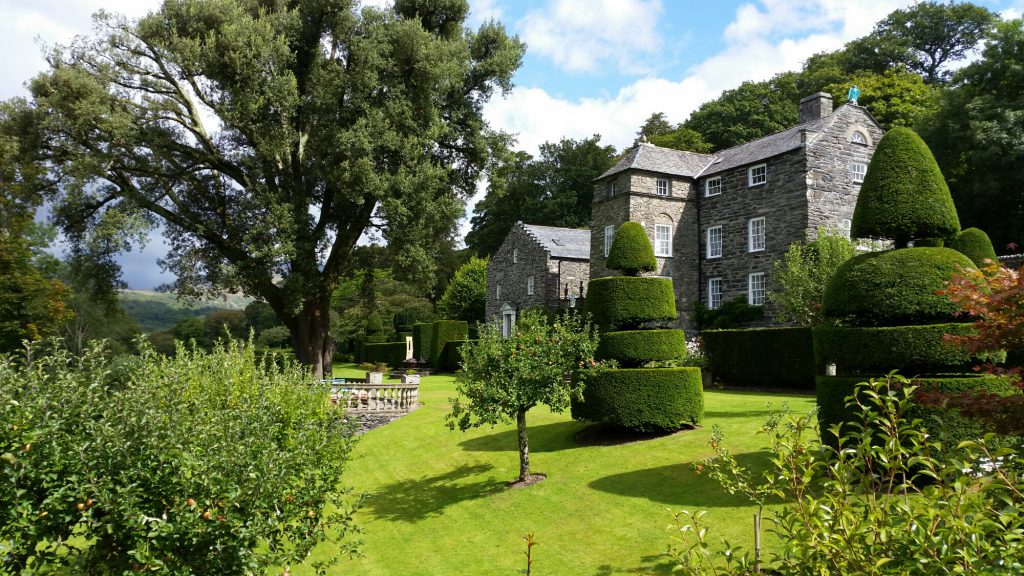
Plas Brondanw
Plas Brondanw, Gwynedd
Former home of architect Clough Williams-Ellis, Plas Brondanw lies within the boundaries of Snowdonia National Park and is just one of the 53 properties on the family’s 3000 acre estate. The grade II* listed house which dates back to 1550, and which the architect devoted most of his life to lovingly restoring, is rarely open to the public; instead, it is Ellis’ spectacular hillside garden, 70 years in the making, which takes centre stage here.
Described by Hubbard as “an outstanding and practically unaltered Arts and Crafts layout”, the garden follows the movement’s philosophy of blurring the boundaries between inside and out, comprising a series of outdoor rooms divided by stone walls and pleached lime trees and furnished with Italianate pools, sculpture and informal planting. Wander down steps, along topiary-flanked terraces and through hidden archways to discover surprise features in every corner. Enjoy the stunning mountain vistas at one of Sir Clough’s many viewpoints which were carefully designed to balance the enclosed effect of his compartmentalised design. Don’t forget to visit the converted coach house cafe which serves the finest local produce.
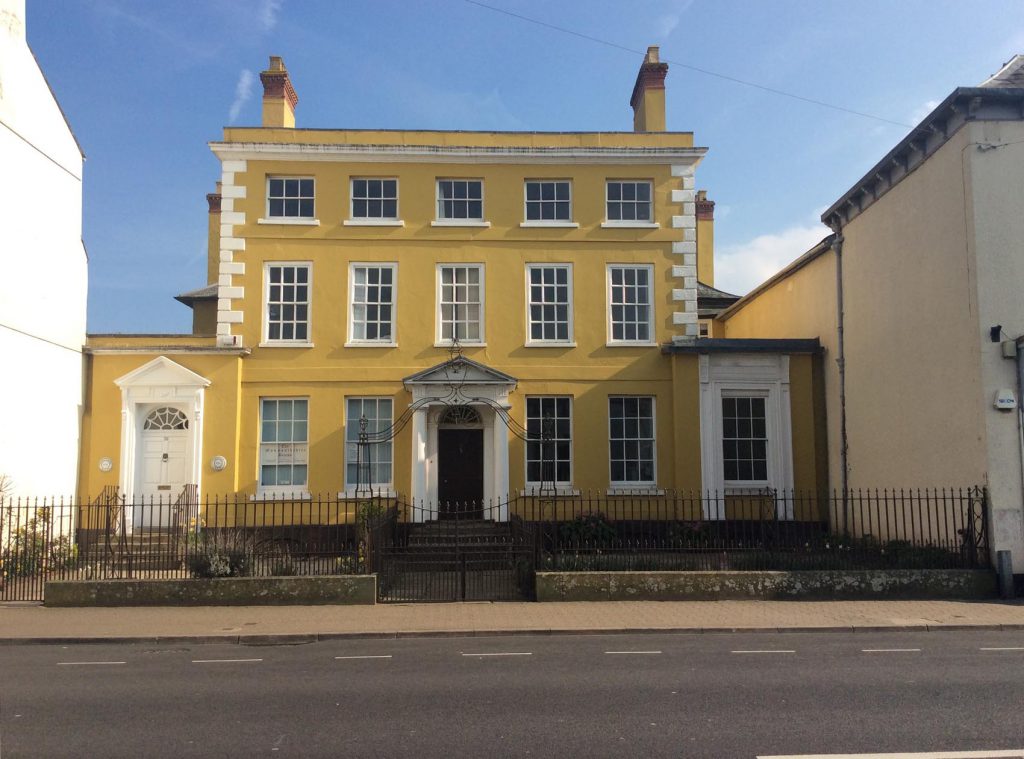
Cornwall House
Cornwall House, Monmouthshire
This grade II listed townhouse can be found sandwiched between shops on the main high street of the historic market town of Monmouth. The original building dates back to at least the seventeenth century, but has undergone many alterations over time. Viewed from the street, you would expect the property to be Georgian with its symmetrical façade and large sash windows, yet this remodelled frontage only serves to disguise a much older building beneath. At the rear, what was once the principal façade is in the completely different Queen Anne style, but this too is an addition.
More recently the interior has also been reconfigured, with part of the original house now taken up by offices. Despite this there remain some stunning original features for visitors to enjoy including fine staircase and Adam-esque chimney piece. The property looks out across Chippenham Fields and is backed by a secluded walled garden and adjacent potager. Being keen vegetable gardeners, the owners have honoured the garden’s original function and visitors can expect to see a wide variety of fruit trees and home-grown produce throughout summer months.
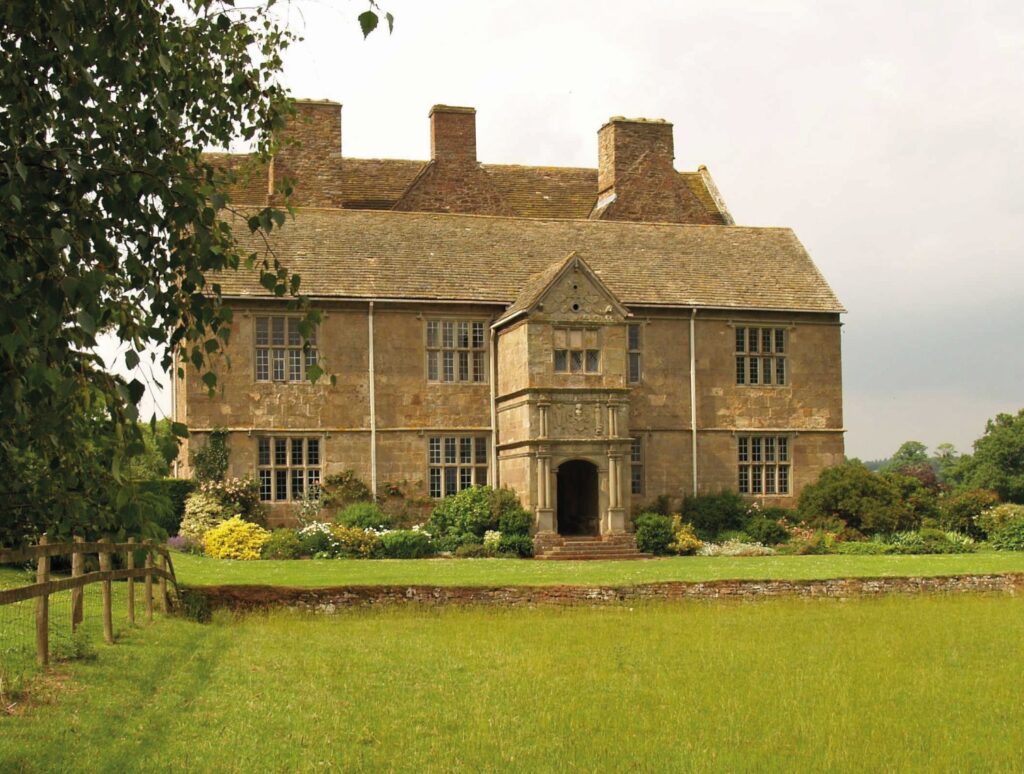
Treowen House
Treowen, Monmouth
From the busy streets of Monmouth, to the rolling hills of its surrounding countryside, why not travel just four miles down the road and visit the spectacular Treowen house which stands alone on a rise in open fields. Despite its sandstone rubble masonry and unsophisticated layout, this grade I listed house, built in 1627, is considered one of the most important historic houses in Wales.
Inside visitors can enjoy unspoilt interiors featuring original wainscoting and a spectacular open well staircase. Committed to caring for the property, the Wheelock family have also managed to buy back and reinstate the original wooden screen from the screens passage. Outside, to the front of the house, a rectangular lawn enclosed on three sides by tall yew hedges mirrors the simple, robust nature of the double-pile architecture. In contrast, to the South a dividing ha ha allows for boundless vistas across undulating farmland which slopes down to a lake.
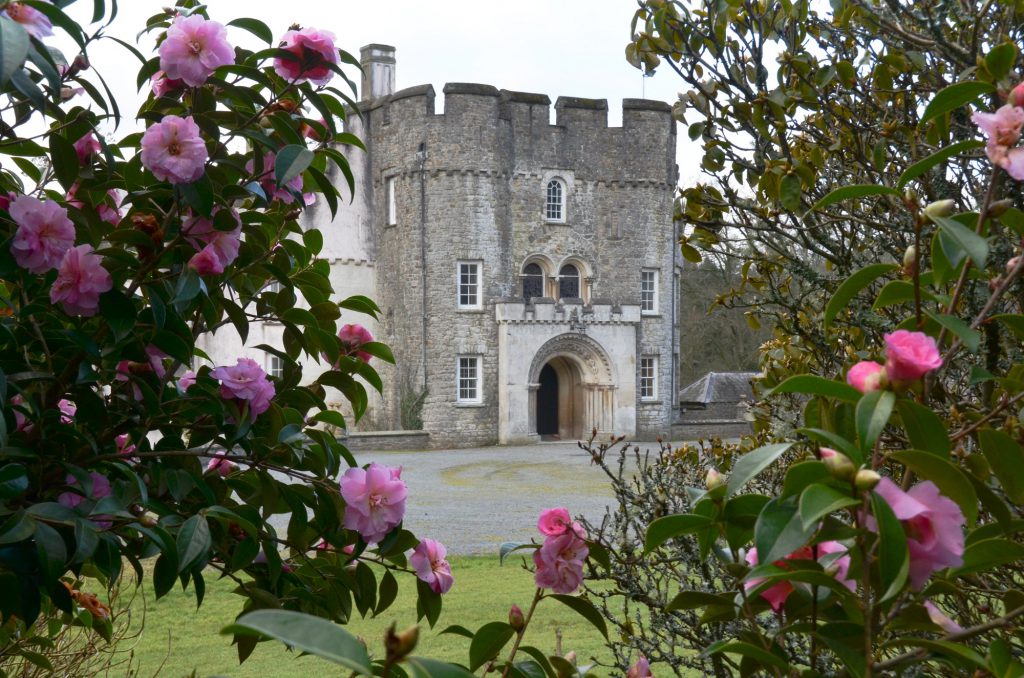
Picton Castle
Picton Castle, Pembrokeshire
Built in by Sir John Wogan in the late thirteenth century, Picton castle has remained home to the same highly influential Pembrokeshire family ever since. As a result of centuries of remodelling, what was an already unusual Medieval castle has evolved into an even more intriguing fusion of fortified Norman and Regency styles, combining battlements and sash windows. Although whitewashed for uniformity, it is still easy to distinguish the original structure – with its four cylindrical corner towers – from its eighteenth century extension of contrasting proportions.
The castle sits within 40 acres of lush grounds and boasts one of the country’s largest privately owned plant collections. Follow one of the several pre-mapped routes around extensive woodland or wonder at will and take in the show-stopping array of rhododendrons, azaleas, camellias and magnolias. Picton also offers its own gallery space, shop and courtyard restaurant as well as a packed calendar of events.
Houses featured here
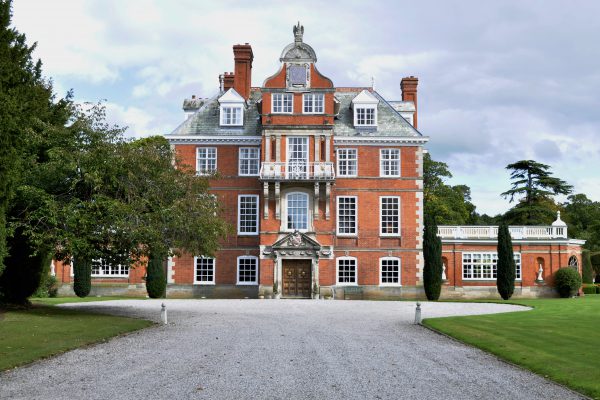
Bodrhyddan Hall
Rhuddlan, Denbighshire, LL18 5SB
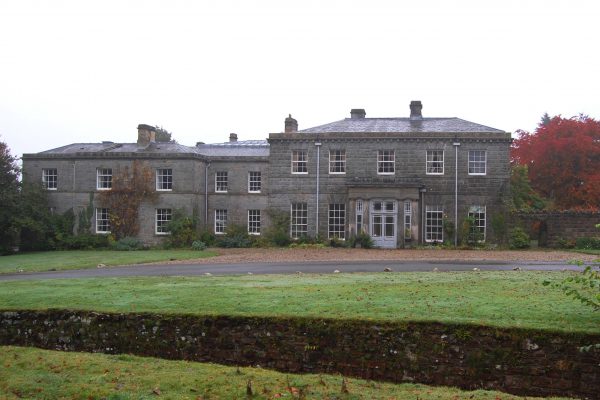
Hartsheath
Mold, Flintshire
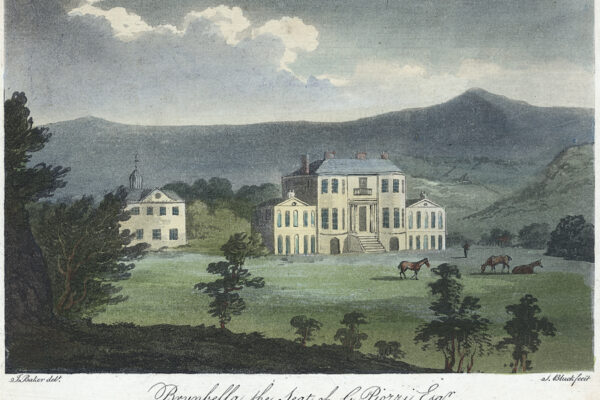
Brynbella
Tremeirchion, near St Asaph, Denbighshire, LL17 0UE
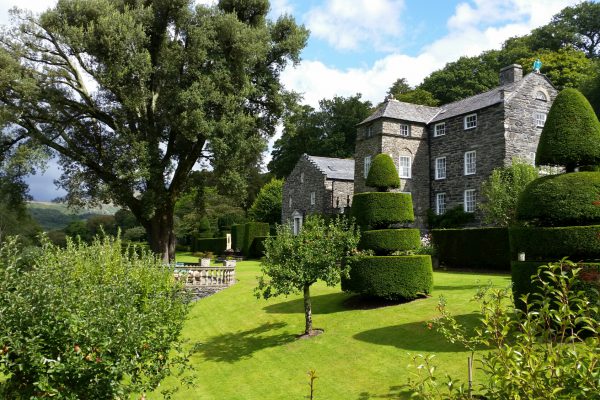
Plas Brondanw
Llanfrothen, near Penrhyndeudraeth, Gwynedd, LL48 6SW
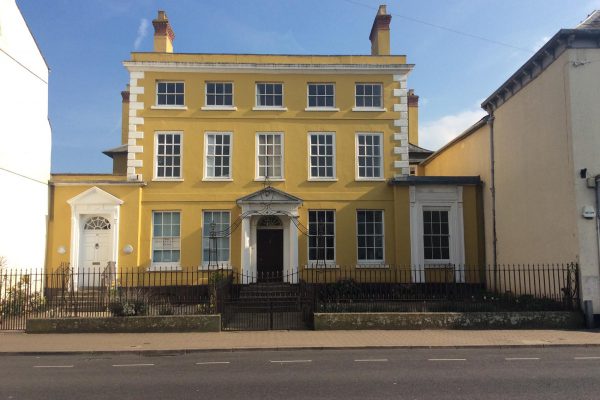
Cornwall House
58 Monnow Street, Monmouth, NP25 3EN, Monmouthshire
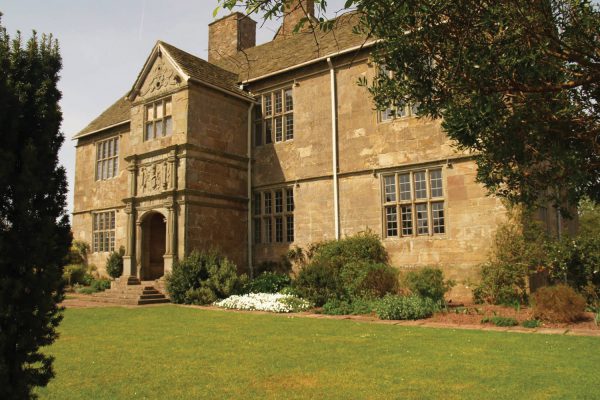
Treowen
Wonastow, Monmouth, NP25 4DL
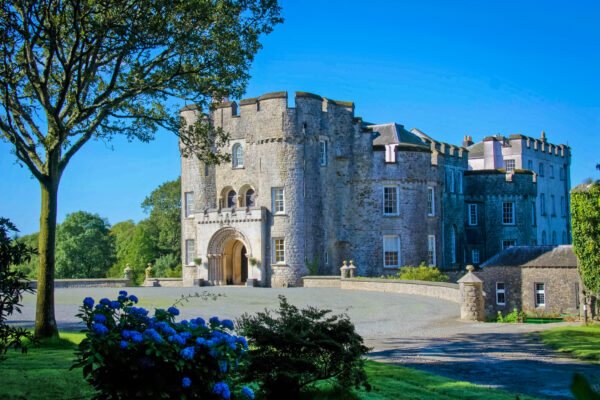
Picton Castle
Haverfordwest, Pembrokeshire, SA62 4AS
Become a Historic Houses member
Explore the nation’s heritage from just £68 per year.
Hundreds of the most beautiful historic houses, castles, and gardens across Britain offer our members free entry.
Also: receive a quarterly magazine, enjoy monthly online lectures, get exclusive invitations to buy tickets for behind-the-scenes tours, and take up a range of special offers on holidays, books, and other products you might like.
